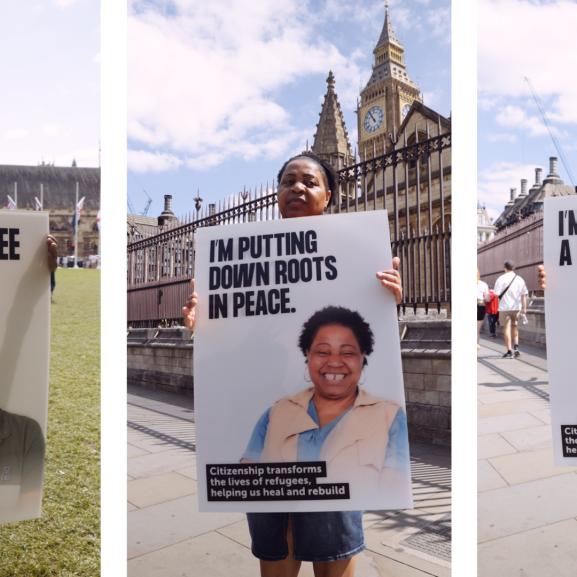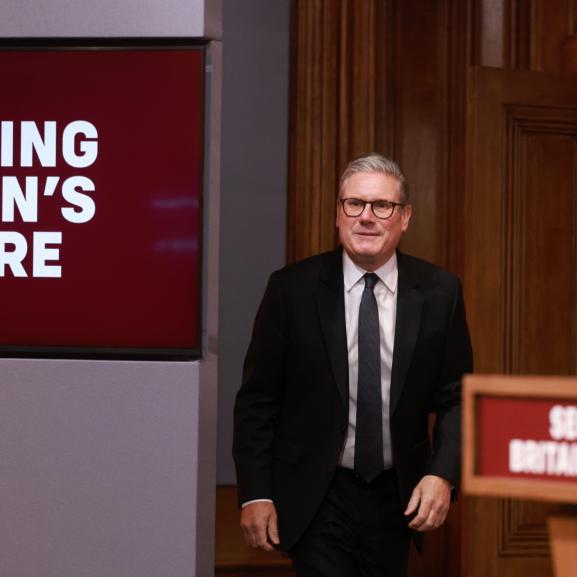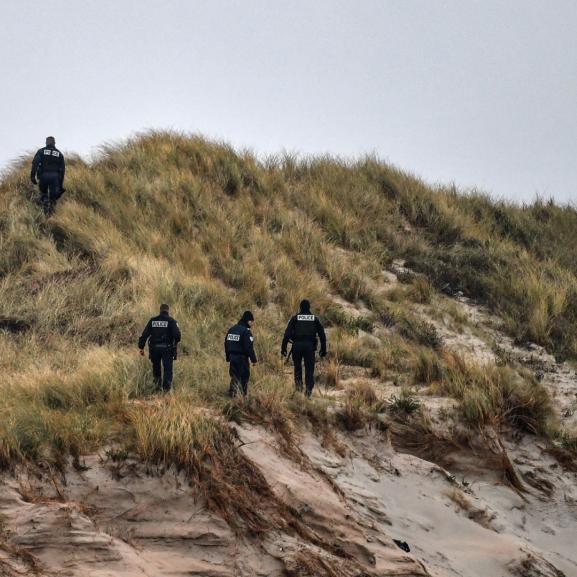MF Warns Asylum Child Care Reforms Could Be Damaging
The Medical Foundation has warned that far-reaching Home Office changes to the way in which unaccompanied child and adolescent asylum seekers are looked after in the UK could damage young people who have suffered torture.
In a formal response to the proposed changes, the MF says they will "increase instability for our clients and interfere with their ability to come to terms with their experiences".
Measures that the Government wants to introduce to care for some 3,000 new cases each year include dispersing young asylum seekers, at present largely looked after in the South East and several other major cities, into the care of councils around the country. Foster care arrangements could also cease when a teenager reaches the age of 16, in favour of other types of support such as shared housing.
X-rays and dental checks are suggested as ways of determining the age of asylum seekers accused of being adults claiming to be teenagers to prolong their stay in the UK.
Discretionary leave to remain for those whose asylum claims have failed but who can't as minors be returned to their countries of origin could be scrapped for those aged 16 and over because, in the Home Office's view, once at that age failed asylum seekers are easier to remove from the country. And children from certain countries of origin, regardless of age, may be forced to return home.
A further change already introduced without public consultation as part of the Government's New Asylum Model is the interviewing of asylum seekers aged 12 and upwards by Home Office caseworkers within 35 days of the asylum claim being made, with decisions reached on the asylum applications days later.
The proposed reforms are outlined in a Home Office consultation paper called "Planning Better Outcomes and Support for Unaccompanied Asylum Seeking Children" which states: "We must safeguard the asylum system from abuse and do more to identify and deter those who are not in genuine need of asylum, while at the same time ensuring the best possible response to those with a well-founded fear of persecution in their country of origin."
Responding to the document, MF Legal and Policy Officer (Children) Syd Bolton, and MF consultant child and adolescent psychotherapist Sheila Melzak state: "not only will the proposals not provide the conditions for "better outcomes" for our clients, but they will increase the risk that torture surviving children and young people will not be identified, will not be referred to - nor have access to - timely, appropriate treatment, and will not be afforded the degree of protection they need, and is required by international human rights and domestic children's laws.
"It is our central concern that under the proposed Home Office model, children will be inadequately assessed and their needs as children and adolescents who have experienced torture and organised violence will not be properly addressed by statutory agencies.
"A model that is rooted in suspicions about the motives for seeking asylum and which has the ultimate aim of removal is unlikely to give adequate time, independent thinking, confidentiality and objectivity to the assessment process."
There are concerns as to whether some councils will have the necessary expertise and commitment to cope with their new charges, and whether there are sufficient immigration lawyers around the country to provide young asylum seekers with the necessary legal advice.
Removing those aged 16 and over from foster case, the MF experts say, will deprive them of "vital connections with consistent and involved carers." There are also concerns that interviewing children age 12 and upwards about their experiences face to face could retraumatise them.
The use of x-rays and dental checks is also criticised. "In addition to seriously doubting the benefit of such measures, and considering their use outside of medical grounds as unethical and even unlawful, we are concerned about the potential harmful impact on child survivors of torture," say Bolton and Melzak.
"If child survivors of torture are forced to undergo any intrusive procedure, especially without the support of an independent adult guardian who can explain the process, there is a real risk that this will hinder their recovery."
The MF, as a member of the Refugee Children's Consortium, also contributed to a joint statement from that organisation criticising the consultation paper. The consortium attacked the removal of discretionary leave to remain for those aged 16 and over, saying: "There is no basis evidentially to suggest that a child of 16 or over is easier to return to their home country. It may in fact present an increased risk to the child (from military conscription, trafficking, inability to access welfare services etc.) The presumption that this may be possible undermines any notion that "best interests" is a fundamental aspect of planning for the child's future".
In summarising its objections, the Consortium states: "The presumptions made in this consultation are no more than political value judgements, political choices and political wishes. They should not be presented as matters of law and principle and in many respects the political choices and presumptions in this consultation are highly inconsistent with international and domestic legal obligations and moreover anathema to child welfare practice."





